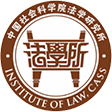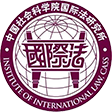 字号:
字号:小
中
大

"The Chinese are coming!" As one BBC documentary title said in early 2011, in the 21st century, if people who live in various parts of the world don’t surprise at the rapidly expanding Chinese economy in the past 40 years, at least they will feel that more and more Chinese are flocking to the stage of international politics and economy at an unprecedented speed and constantly touching every sensitive nerve in the world. However, anyone wishing to truly understand what China has done, or is about to do, in the 21st century must have basic common sense of what China has experienced in the last century or longer.
The twentieth century in China started with such an extremely unusual and even depressing way that some Chinese nationalist rhetoric describes it as a “century of humiliation”. In 1900, the supreme ruler of China at the time lost his reason for superstition and rashly declared war on eight nations at the same time. As a result, it not only failed to capture any inch of land in any of the eight countries, but also instead led to the most severe crisis of sovereignty in its own country. Beijing fell into the enemies, and the supreme central authority had to flee to a corner of northwestern China. Although this tragic result is only another serious failure after numerous setbacks in China since the first Sino-British Opium War in 1840, it has inadvertently opened the way for China's modernization.
After the Chinese-foreign peace accords were concluded, the Chinese government began systematic reforms in the legal and political fields. However, the pace of reform in the Central Government was too slow to meet the demand of reform in all sectors of society, and the gap between local society and the Central Government was getting worse. Eventually after great riots in Hubei and Sichuan in October 1911, Chinese state institution soon realized the political transition from monarchy to republic. Since the founding of the ROC in the following year, the Democratic Republic has become an important means for the Chinese people to try to change the fate of their nation and return to the great powers. Nevertheless, apart from few educated intellectuals, the vast majority of Chinese people lacked the quality of democracy and the rule of law. And in fact, after the dissolution of the imperial power, many warlords in China behaved their own ways and hold their own armies. The rough and pretentious republican government was too weak in internal affairs and diplomacy to unify all the country. As a result, the Kuomintang and the Communist Party, these two nationalism parties both tended to establish a strong-dominating strongman politics for changing this severe and paradox situation, even they had never given up the flag of democracy.
Through the Second World War, China not only rebuilt the country's image, getting the state independence, but also became one of the founding nations of the United Nations. Yet the new international peaceful order did not immediately give China domestic peace and development opportunities. On the contrary, three years of the cruel civil war took place (1946-1949), leading to the collapse of the Kuomintang government and the establishment of the communist regime. Subsequently, as the Korean War broke out, China fell into the arms of the Soviet Union and cut off its interaction with the Western democracies. The political, economic and social development in Chinese mainland began to be modeled according to the socialist ideology. The one-party governance has lasted over sixty years until today.
Including Sun Yat-sen and Mao Zedong, many former Chinese politicians in the 20th century admired the European and American democratic politics so much when they were young, that they deeply in heart hoped that China would achieve the goal of making the country rich and powerful through the same way, democratization. However, all tactics were changed finally. In consideration of the brutal and complicated reality, almost all the Chinese politicians were inclined to establish a centralized political system, controlling all the society and all kinds of power - or more precisely kidnapping the entire nation and all the people so as to carry out the national modernization goal set by the highest sovereign.
As Steve Bannon, former adviser to the President of the USA Donald Trump, pointed out in a speech in Japan last November, all facts have shown that China's modernization path is not to fulfill the political democracy on the basis of economic democracy. Actually, what the CCP Bureau strongly strives for is a global hegemony based on the state capitalism. It is worth noting that in this process, accompanying to the development of China's economic modernization, though it is inevitable that there will be inextricable links with the rest of the world, apparently it’s not easy for China’s government to recognize and accept the democratization of political reforms - even the most basic universal values such as democracy and the rule of law.
Some may know the word "China" originally means "the central state of the world". While in this developing globalized time, we can find China is trying to propagandize the rejuvenation of China as a call, to mix its traditional and communist ideology resource, to bring together all the forces of the entire nation, and to go near to the center of the world stage.
Since 1949, especially after nearly 40 years of expansion since 1978, China's capitalism adequately shows the strength of its national capital through a series of major international conferences held in China recently. At the same time, it’s difficult to cover that the pressure of democratization and rule of law in China, the challenge of economic restructuring and transformation, the collapse of social morality and ethics, the poor-qualified education system, and the shortage of the social security system, etc., many too problems are still severely grave. In short, how to realize social fairness and justice, protecting every citizen's private right of freedom and property, and freely participating in politics, is a tremendous project. As many media has reported, just in this November many districts of Beijing began to drive away millions of people originating from other provinces, with a discriminatory title "the low-end people", that once again highlighted the limitations of China's national governance capability and worsened the intensification of social conflicts.
China hasn’t known how to play its international role as a mature power. Undoubtedly, western countries in Europe and America faced many problems, such as economic downturn, unemployment and terrorist attacks in recent years, and it has provided an unprecedented opportunity for China's national capital to expand globally. However, whether the knowledge innovation and intellectual supply within the country are sufficient enough or not to support the ambition of occupying the world stage center is still unknown. We can say that comparatively the China’s problems and challenges are partly due to the pressure of competition from external countries and regions, yet in the 21st century if China wants to return to or occupy the center of the world stage, its real biggest enemy is just itself and not any foreign countries.
Fellows, le regard de chercheurs internationaux sur l’actualité, No.36, 24/01/2018



